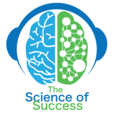The Mysteries of Consciousness Explained & Explored with Neuroscientist Dr. Anil Seth

Summary: <div>In this episode, we go deep into a scientific look at consciousness. We ask, how do our brains experience reality? What is consciousness? Is our perception of reality nothing more than a “controlled hallucination?” What is the “hard problem of consciousness” and what are the major aspects of consciousness? How can we use the neuroscience of consciousness to better ourselves and improve our lives? And much more with our guest Anil Seth. </div><br> <div> </div><br> <div>Anil Seth is the professor of Cognitive and Computational Neuroscience at the University of Sussex. He is the co-director of the Sackler Centre for Consciousness Science, the editor in chief of Neuroscience of Consciousness, and was the President of the British Science Association for psychology in 2017. His TED talk has been viewed over 2.5 million times and his work featured in The Guardian, the BBC, New Scientist, and more!</div><br> <div> </div><br> <div> <br> <ul> <li> <br> <div>How does our brain experience reality?</div> <br> </li> <br> <li> <br> <div>Consciousness is a funny thing - we don’t have a good definition of it, but everyone knows what consciousness is </div> <br> </li> <br> <li> <br> <div>There is a subjective experience of consciousness for being human </div> <br> </li> <br> <li> <br> <div>For much of the 20th century, much of psychology and neuroscience ignored the phenomenon of consciousness</div> <br> </li> <br> <li> <br> <div>Consciousness is dependent on the brain</div> <br> </li> <br> <li> <br> <div>The questions of consciousness are some of the most important and urgent questions we can ask</div> <br> </li> <br> <li> <br> <div>What is the “hard problem of consciousness?” and why is it so important?</div> <br> </li> <br> <li> <br> <div>What are the problems of consciousness?</div> <br> </li> <br> </ul> </div><br> <div> <br> <ul> <li> <br> <ul> <li> <br> <div>The easy problem is figuring out how brains do what they do, how they implement functions, guide behavior, allow the world to be sensed, how the brain works as a mechanism - this will keep neuroscientists and biologists busy for a long time</div> <br> </li> <br> <li> <br> <div>The hard problem is explaining how and why any of this should have anything to do with conscious experience and why conscious experiences happen</div> <br> </li> <br> </ul> </li> <br> <li> <br> <div>However detailed your understanding of the brain is - it will leave untouched the question of how/why consciousness exists in the first place </div> <br> </li> <br> <li> <br> <div>We don’t need to solve the hard problem to pursue a very productive study of consciousness</div> <br> </li> <br> <li> <br> <div>How our biological understanding of life parallels our understanding of consciousness </div> <br> </li> <br> <li> <br> <div>The three major aspects of consciousness (they inter-related and not necessarily independent)</div> <br> </li> <br> <li> <br> <ul> <li> <br> <div>Conscious level - a scale from being completely lacking in consciousness (a coma, dead) all the way to being fully awake and fully conscious</div> <br> </li> <br> <li> <br> <div>Conscious content - when you’re conscious you’re conscious OF something</div> <br> </li> <br> <li> <br> <div>The experience of being a particular person</div> <br> </li> <br> </ul> </li> <br> <li> <br> <div>We don’t passively perceive the world, we actively generate it </div> <br> </li> <br> <li> <br> <div>When we perceive things, our brain is taking energy waves and electrical signals and interpreting them into prior predictions and expectations</div> <br> </li> <br> <li> <br> <div>We aren’t conscious of our passive predictions, we’re only conscious of the results of them</div> <br> </li> <br> <li> <br> <div>It seems to us that the world is out there, as we perceive it</div> <br> </li> <br> <li> <br> <div>You will only see things that you believe </div> <br> </li> <br> <li> <br> <div>Optical ill</div> </li> </ul> </div>
